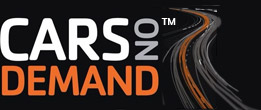
Buying A Car For Business: What Are The Different Buying Options?
If you’re a small business owner looking for advice on purchasing a car or group of vehicles to for you or your employees, then there are number of options you can explore before making the final decision on how best to introduce company vehicles to your business.
Let’s take a look at some of the most common ways of financing a company vehicle and what effect each one has on your accounts and tax position.
1. Buying a car outright for your business
As the title suggests, this option involves paying off the entire cost of the vehicle in a lump sum – and hey presto, you’ve got a brand new car for your business.
Pros
Once you’ve bought the vehicle, it is yours to keep and is in the business for you to do whatever you like with. You’ll also pay less interest than say, a Hire Purchase lease, so you’ll pay less over all.
Cons
Introducing vehicles to your business by buying outright will obviously affect your cashflow and it’s unlikely that you’ll recover the full cost of a vehicle if you decide to sell it.
What about the accounts/tax effect on buying a car outright for my business?
The car will be an asset on your balance sheet, but will reduce over the years by depreciation which will also reduce your profits. For taxation purposes, the depreciation will get added back to your profits; however capital allowances can be claimed which will reduce your taxable profits and therefore reduce the amount of tax payable.
2. Buying a car for your business using a hire-purchase lease
Financing a vehicle for your business using a hire-purchase (HP) agreement means that you’ll pay a deposit followed by several monthly payments. When these have all been paid off, the vehicle becomes yours to keep.
Pros
Financing a company vehicle using hire-purchase will free up your cash flow and allow you a more expensive vehicle than buying outright. However, make sure you don’t buy a car that is impractical or unrealistic for the needs of your business.
Cons
Company vehicles purchased using hire-purchase will obviously be subject to interest rates, and until the loan is full paid off, you can’t sell the vehicle on without permission from the creditor.
Some providers may also charge an ‘option to purchase’ fee at the end of the term, so this is always worth checking out before signing up.
What about the accounts/tax effect on buying a car for my business using hire-purchase?
Accountants usually class company vehicles bought using hire-purchase as fully paid, and therefore the usual depreciation allowances would still apply.
You will still own the vehicle once all the payments have been made and you’ll also have tax relief on the interest you have incurred.
3. Leasing a vehicle for your business
Leasing a vehicle for your business involves paying fixed monthly repayments over a set period of time to hire the car.
Pros
If you use vehicle leasing to introduce a car to your business, you’ll see less of an impact on your cashflow as you would make smaller, regular monthly repayments instead of a lump sum.
This also means you can budget effectively as you know exactly how much money will be dedicated to funding your business vehicle every month.
Lots of leasing companies also include vehicle maintenance in your contract, which means you have peace of mind when it comes to the cost of fixing any problems that arise.
Cons
You’ll never own a lease vehicle, so you if you take out a longer term leasing contract with several months or years of repayments, you still won’t be able to sell it at the end of the agreement and recoup some of the cost.
There are also mileage and usage restrictions which can apply, but most leasing companies should be flexible enough to agree a tailored package that accounts for the amount of driving that will be done in the vehicle.
What about the accounts/tax effect on buying a car for my business using hire-purchase?
The regular payments made would be included in your profit and loss account and therefore would reduce the profits subject to tax in their entirety.
If you are VAT registered you can recover 50% of the input VAT that you are charged.
If you would like to chat further about how you can introduce vehicles to your business in the most cost effective way for you, then please contact us and we’d be happy to help.

